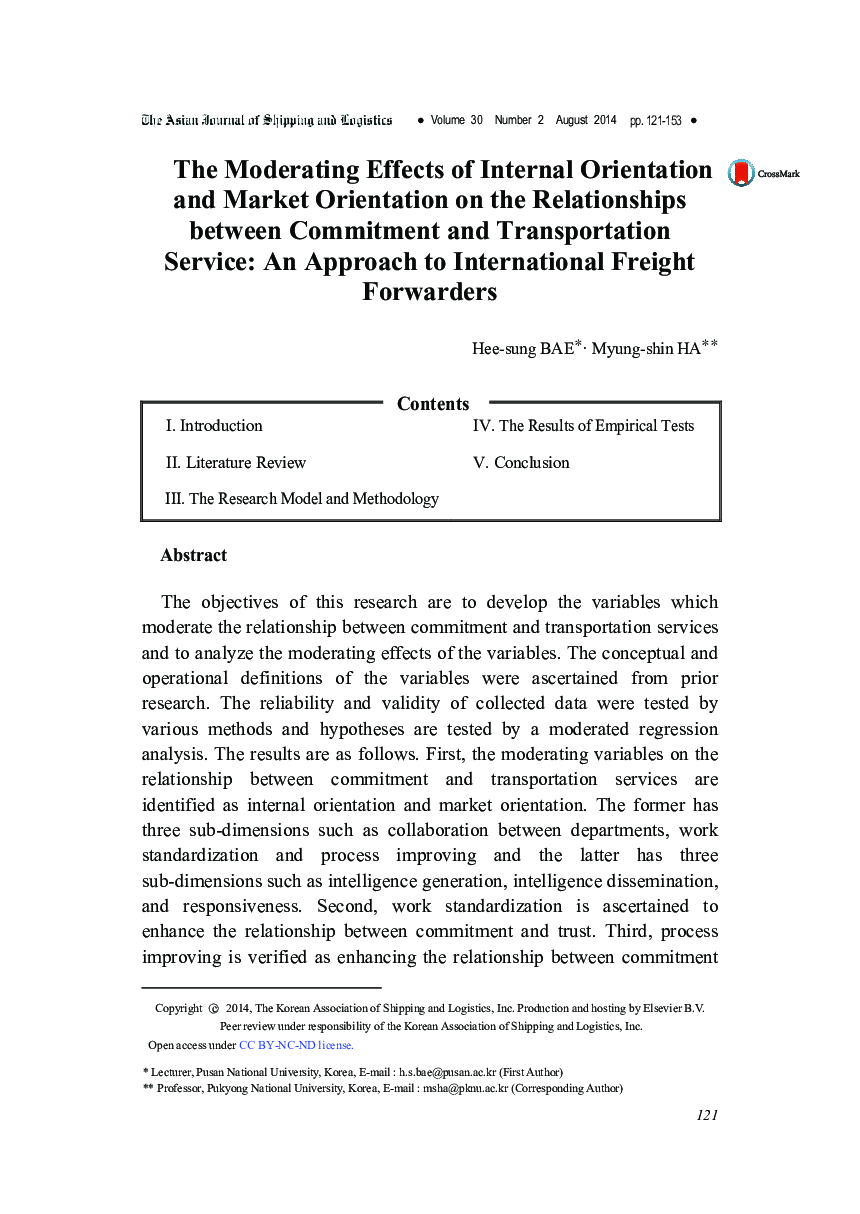| Article ID | Journal | Published Year | Pages | File Type |
|---|---|---|---|---|
| 992768 | The Asian Journal of Shipping and Logistics | 2014 | 33 Pages |
The objectives of this research are to develop the variables which moderate the relationship between commitment and transportation services and to analyze the moderating effects of the variables. The conceptual and operational definitions of the variables were ascertained from prior research. The reliability and validity of collected data were tested by various methods and hypotheses are tested by a moderated regression analysis. The results are as follows. First, the moderating variables on the relationship between commitment and transportation services are identified as internal orientation and market orientation. The former has three sub-dimensions such as collaboration between departments, work standardization and process improving and the latter has three sub-dimensions such as intelligence generation, intelligence dissemination, and responsiveness. Second, work standardization is ascertained to enhance the relationship between commitment and trust. Third, process improving is verified as enhancing the relationship between commitment and trust. Fourth, work standardization is ascertained to enhance the relationship between commitment and flexibility. Fifth, intelligence generation is identified as enhancing the relationship between commitment and trust. Sixth, intelligence generation is verified as enhancing the relationship between commitment and flexibility. Therefore, forwarders can supply superior transportation services for customers when they achieve commitment and orientation such as work standardization, improvement of their service processes, and activities concerned with intelligence generation.
